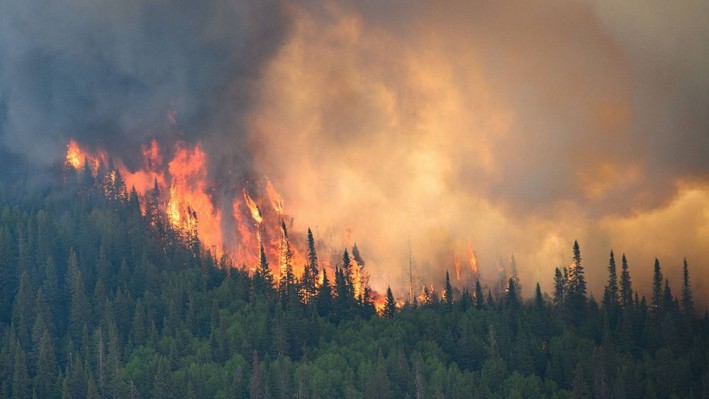- A study reveals that Canada's 2023 wildfires released as much carbon dioxide as India emits in a year, marking a concerning milestone for climate change.
The wildfires that ravaged over 15 million hectares in Canada during the May to September 2023 season have reached an alarming record, emitting 647 megatons of CO2—an amount comparable to the annual emissions of an industrial giant like India. This finding comes from a study published in the prestigious journal Nature, which not only highlights the scale of the environmental disaster but also projects a future where such events could become the norm due to climate change.
The international team of scientists, led by Brendan Byrne from the Jet Propulsion Laboratory in Pasadena, USA, has underscored the severity of the situation. The fires have not only had a direct impact on air quality, severely affecting cities like Montreal, but also jeopardize the ability of Canada's vast forests to act as carbon sinks, which are essential in the fight against global warming.
Canada's forested area, covering nearly 362 million hectares and representing 8.5% of the global total, is a critical component in regulating the global climate. However, the emissions from the 2023 wildfires, including 421 megatons of CO2 from forests considered part of human activities, equal the total emissions of Canada's economy over roughly three years.
The study's authors warn that while the exceptionally high temperatures of 2023 were unusual compared to the last 44 years, CMIP6 climate models indicate that by 2050, such conditions could become commonplace. This suggests an increase in the frequency and intensity of wildfires, which in turn would reduce forests' capacity to retain carbon, negatively impacting global efforts to mitigate climate change.
The study also notes that these extreme events could have significant implications for Canada's international emission commitments, as the country may see its ability to meet established targets diminished.
The research emphasizes the urgent need for effective policies and measures to combat climate change and adapt to its consequences, aiming to protect not only Canada's forests but also the health and well-being of populations affected by deteriorating air quality and other environmental impacts.







Comments (0)
No comments yet. Be the first to comment!
Leave a comment